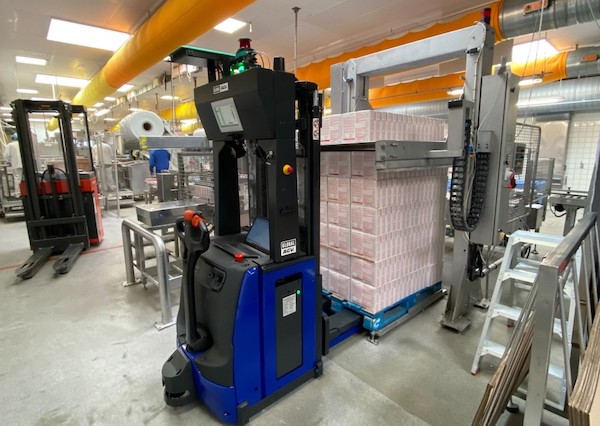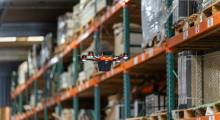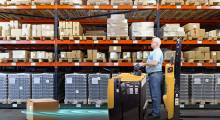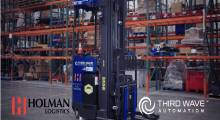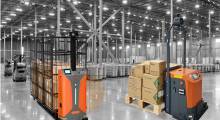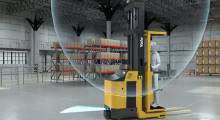When hungry fast food customers in 39 countries around the world order a McDonald’s Filet-O-Fish, Fish McFeast Fisk, or Rye Fish McFeast, they’re digging into breaded fish from the Danish seafood producer A. Espersen. The company recently turned to driverless lift trucks from BILA AS to meet high demands for efficiency.
“Automation is the future, and this is how we can increase our efficiency and produce profitably in Denmark,” said Stig Nielsen, production manager at A. Espersen. “No one has lost their job because of our new driverless forklift truck.”
“Quite the opposite, in fact,” he added. “We have liberated our employees from monotonous, repeated manual labour and optimised our manufacturing processes and production flows.”
A. Espersen looks to overcome bottlenecks
As McDonald’s preferred fish supplier in over 39 countries, A. Espersen must be able to deliver high-quality products on time. Bottlenecks mean that employees end up standing around and waiting, which is costly and unsustainable.
A. Espersen used to face recurring problems when the production line ran out of empty pallets because it was impossible to replenish these in time. In addition, the company faces worsening shortages of qualified forklift truck drivers and service staffers.
Claiming to be the world's leading producer of frozen fish products, A. Espersen decided to use an automated guided vehicle (AGV) in its fish processing plant.
BILA deploys driverless lift truck with worker input
A. Espersen worked with BILA, which said it is Denmark's largest and oldest automation company, to install, fine-tune, and service the AGV. The companies worked to ensure that the robotic lift truck helps streamline processes at the food plant.
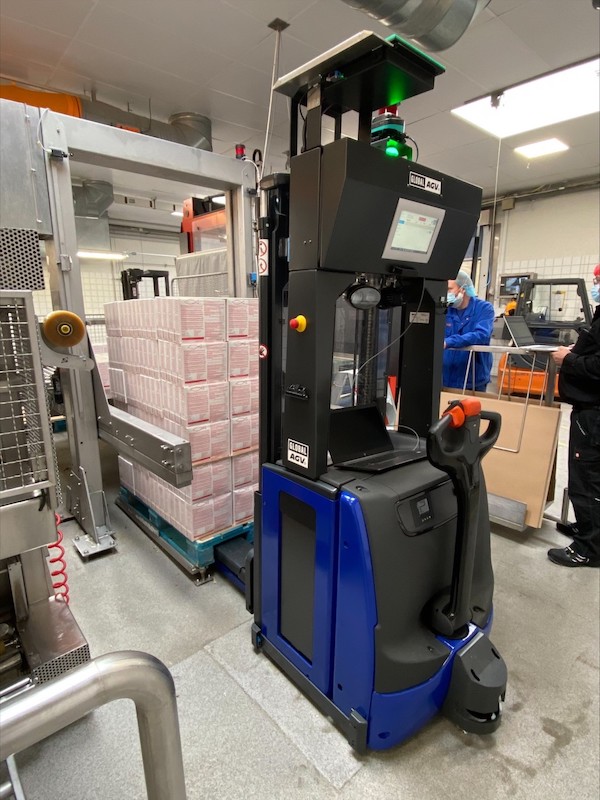
They also received valuable input from staff plant staffers for the Global AGV driverless lift truck.
‘I’ve involved my employees in the automation process right from the get-go, since their word carries weight when new manufacturing processes are introduced,” said Nielsen. “In the end, they’re the ones who will have to work alongside the Global AGV.”
“When automating production processes, it’s important to take account of 'real-life' details,” he noted. “Otherwise, I don’t think it would have been a success.”
The employees named the first AGV “Ole” and treat it as a new “colleague.” The autonomous forklift attends to routine duties for 16 hours a day at three different workstations in the plant.
One of the driverless lift truck’s duties is to collect and deliver empty pallets to a Palomat pallet magazine on the production line. In addition, the AGV transports raw produce to the production line and finished products to the stretch wrapper.
Last but not least, the driverless lift truck is able to drive around autonomously and stops to recharge whenever it needs to.
Partnership could lead to more Global AGVs
Nielsen said he is enthusiastic about the possibility of adding more driverless lift trucks. Last year, 122,000 AGV units were shipped, according to Statzon.
‘There will always be more we can automate, and BILA is a strong and reliable partner for this,” Nielsen said. “I’m one of those people who is ready to fully commit to something once I can see its purpose, and I can already say that I can see opportunities for optimisation with more Global AGVs in our production process.”
Beyond its facilities in Denmark, A. Esperson has plants in four other locations around the globe so it can stay close to both suppliers and customers. They are in Lithuania, Poland, Russia, and Vietnam. In addition, the company has offices in the U.K., France, Germany, Sweden, Malaysia, and China.

About the author
Malene Grouleff is CEO of Workspace and a robotics journalist, blogger, and consultant. This article is reposted with permission.
Article topics
Email Sign Up



